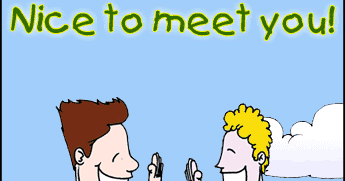HELPFUL FRENCH PHRASES
Updated: Mar 20, 2021

French is one of my favourite languages to try and speak, there have been times when in France we have spoken a bit and actually understood the response, but there have been some failures where they haven't understood me, or I haven't understood them or even both and end up looking at each other in bemusement.
French-derived from vulgar Latin, but later a mixture of Gaulish, an old Celtic language and Frankish left their mark. Still, in 1539 the French language was made official. It became much more normalized from the 17th century and is now spoken in 29 countries and is one of the most romanticised languages.
Another fact is that just under half of the English words had come from the French language due to the invasion of 1066 when French became the hierarchy's language.
So let's begin with the basics:
Bonjour, ça va? ( HELLO )

One that nearly everyone knows is then French for Hello; even Del boy knew this one ( for anyone reading this outside of the U.K, you will need to google Only Fools And Horses and del boys french phrases )
Comment t’appelles-tu ? ( HOW ARE YOU )

This is a formal question to someone you have just met, but an informal version is ça va which you can use for family or friends in a casual conversation.
Enchanté(e)! ( NICE TO MEET YOU)

One of the most romantic-sounding words we have heard to say "nice to meet you", put it with a French accent you could sound like a local Frenchman wooing his 'le coup de foudre' ( love at first sight)
Je vais bien. ( I AM FINE)

After being asked, How are you?, you could reply with this formally, or an informal way is ça Va Bien, translated means I am good.
A bientôt/demain! ( SEE YOU/TOMORROW )

As an alternative to the goodbye below, you can use just A bientôt; again, this is an informal way of saying goodbye.
Au revoir! ( GOODBYE )

Another one of the most known French words and a formal way of saying goodbye.
Est-ce que vous pourriez m’indiquer le chemin pour aller à (…)?
( COULD YOU SHOW ME THE WAY TO )

This phrase could come in very useful if you get lost , but be warned, as we found out the French speak very fast in their response, so listen carefully, or ask them to slow down ( pourriez-vous parler un peu plus lentement s’il Vous plaît )
You could use this if you were singing the famous Amarillo song in French. I never tried it but gave it a go; it sounds a bit of a tongue twister. 😂
Je nais pas ( I DONT KNOW )

Use this confidently when you don't know the answer to something; even if you can't say it properly, all you need with it is a big shrug of the shoulders, raised eyebrows and lowered mouth, and the actions will speak louder than the words. 😊
C’était dèlicieux! ( IT IS DELICIOUS )

This is a great appreciation sentence, which will go down very well if you attempt to say and show your gratitude for the many delicious foods you will try in France.
Combien est-ce que ça coûte? ( HOW MUCH DOES IT COST)

It can be a crucial question to ask before getting into Taxis or before purchasing anything really; it's always nice to know what you're about to spend. If you don't know your numbers in French, then the old fingers come in useful. If the whole sentence is too much of a mouthful, then 'Combien?' is satisfactory.
Je voudrais une bière ( I WOULD LIKE ONE BEER )

As always, a handy phrase for an end to a busy day or the start of a busy day, whichever takes your fancy.
Combien de trench souhaitez-vous ( HOW MANY SLICES OF HAM WOULD YOU LIKE )

This is a very random sentence, but I learned when working in the Butchers and had a young French customer. Her mother would come into the shop when she was on holiday, she couldn't speak any English but always had ham so one day I surprised her with this sentence, and she was shocked, the rest of the conversation was lost on me, but she went away happy, and it has stuck with me ever since
S'IL VOUS PLAIT ( PLEASE )

Manners, Manners, Manners, you need them in every country.
MERCI ( THANK YOU )

Again manners go a long way in life.
We hope some of these phrases help you in the future. If you have any questions, please get in touch. Merci, Au Revoir.
